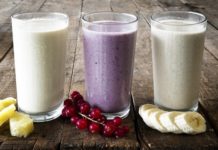This is an age-old debate and goes on without any merit. Usually faith is the main reason why people opt one against the other. But is this legit? We find out today.
Protein is essential for muscle building and it is always better to get from all sources possible. The idea is to get the complete protein spectrum for wholesome development. Protein helps our body to maintain lean muscles and is also used for repairing broken body tissues. Protein, when ingested, breaks down to amino acids, and works as the building block for muscle building.
What is Plant and Animal Protein?
Our body manufacturers amino acids which are of the non-essential variety. Plants & Animal sources have those which are essential for our body and in total there are 20 such amino acids. The profile of animal based amino acids have a good balance of essential amino acids whereas the plant profile is weak and have low percentage of methionine, lycine, isoleucine and tryptophan. This is the sole reason the animal protein has great demand.
Friends, now that we have discussed the differences between plant and animal protein sources, let us see what are the different sources for each.
Sources of Animal Protein
All non-vegetarian sources have a complete profile of essential amino acids. As you can guess, the richest sources in this list includes all of these:
- Meat
- Chicken
- Seafood
- Dairy products
- Eggs
Note
Unprocessed chicken or any meat product is the best you can rely on. Processing often adds huge amounts of salt which is detrimental for your health.
Seafood, including fish gives not only protein but heart-friendly Omega-3 fatty acids. This gives you the best of both worlds so you can keep growing your muscles and backed up with a healthier heart that supports in all your exercising schedules.
Note
Bodybuilders often discard the “yolk” which is a big mistake. In fact, this yolk contains around 3 percent protein and some saturated fat and cholesterol, which are essential for our body. This is in addition to the vitamin D and iron that the yolk provides.
Eggs have an Upper Hand
Egg whites have about 4 grams of protein and has the complete profile of amino acids our body needs. If you have eggs in your meals, there will be no need to look for other protein sources. That said, if you add whey protein to your meals, you will benefit from the combination immensely. That is because whey protein digests quickly compared to those found in egg whites. If you have both: egg whites and whey protein in your breakfast, rest assured it will give your day a powerful kickstart!
Sources of Plant Protein
Surprisingly plant protein has infinite sources, contrary to what many people believe. Right from veggies to nuts and seeds or herbs, plant-based sources are another way to lay hands on fully natural, earth-grown protein variety.
Though, as mentioned above, the profile is slightly weak but in no sense inferior. Animal protein sources often need cooking whereas the plant based protein can be had off the shelf, eaten raw. Being plant based, it is easily digested compared to the extra work our body needs to do to digest animal based protein.
This list is interesting as it contains seeds, nuts and something which not many consider even worth looking, but used by astronauts!
- Pumpkin seeds
- Spinach
- Potato
- Spirulina
- Quinoa
- Almonds and peanuts
- Chia seeds
- Avocado
- Soya
- Peas
- Hemp seeds
- Beans
- Lentils
- Chickpea
Benefits of eating Animal Protein
Animal proteins have a shade extra nutrients when compared to their counterpart, plant proteins. Let us see what these animal proteins contain, as extra nutrition:
DHA (found mainly in Fish) – An essential omega-3 fatty acid found in fish. This nutrient helps in our brain development and is exclusive to animal protein.
Vitamin B12 too is exclusive in non-veg items like meat, eggs and fish.
Iron – is plentiful in red meat and is absorbed by our body better than their plant variety.
Vitamin D – though we get it through sunlight, it is also sourced from eggs, fish and dairy products. Plants do have it because they use sunlight for processing chlorophyll, but this variety is not considered that useful.
Zinc – though available in both sources, the meat source is considered better and full-bodied compared to the plant variety.
Where Plant Protein scores over Animal Protein?
Plant protein comes associated with many benefits and is the main reason people the world over are choosing them over the animal variety.
Helps reduce Obesity – Plant protein has minimal fat and hence the result.
Helps in weight loss – Chickpeas, beans, kidney beans, spinach are loaded with protein that keep hunger at bay but provide a feeling of fullness. Less food means quick weight loss.
Lower Heart Disease Risk – Plant proteins low your blood pressure, cholesterol and hence the result.
Beneficial in reducing Diabetes Type 2 – Research shows that nuts, beans and legumes improved blood sugar levels.
Conclusion
Both varieties of proteins have different and varied benefits. It makes sense to eat some portions from each variety for healthy and long life. Modern lifestyle has the drawbacks of less exercise and here plant protein works best. For bodybuilders, animal protein works best as it improves muscles and helps give you that chiseled body.









